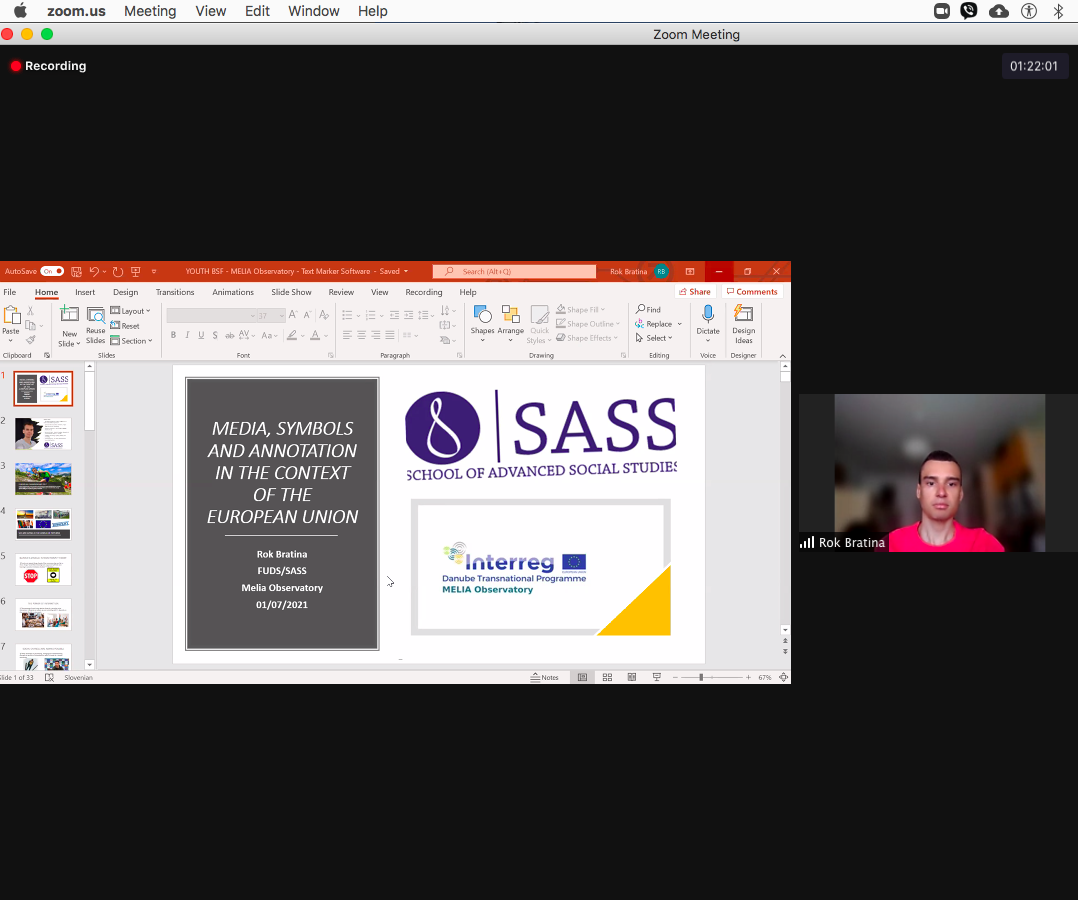MELIA Observatory - Cooperation between Melia observatory and Young Bled Strategic Forum 30.6.-1.7.2021
01-07-2021
MELIA Observatory project is closely related to the aims of the priority area 10 of the EUSDR, Institutional capacity and cooperation, so our team joined the event. MELIA is also an important initiative that contributes to the digital challenges of today, on the topic of information literacy, media literacy, resilience against disinformation/misinformation and overall support for active citizenship, especially that of young participants, so our team joined the preparatory event of the Young Bled Strategic Forum - https://bledstrategicforum.org/young-bsf/.

For the past decade, the Young Bled Strategic Forum (Young BSF) has been bringing together young leaders aged between 18 and 35 years from all over the world to engage in lively discussions and develop innovative solutions to some of the most pressing global issues. It has become a unique meeting place for a diverse array of young leaders, entrepreneurs,
influencers, thinkers and social activists, offering them a platform to share their visions, exchange ideas and connect.
Young people, often metaphorical as 'our future' (in a truthful or cliché manner), and their participation in society is crucial in creating resilient democracies and a sustainable global environment that can respond to the myriad contemporary and future global challenges.
Engagement of young individuals does not only include political participation but a broader approach, ensuring the right, the means, space and opportunity to participate and take action towards building a better society, as underlined in the Revised European Charter on the Participation of Young People in Local and Regional Life. Although the possibilities for youth
participation have increased, we can still do more to encourage greater engagement, connection and empowerment of young individuals in practice and contribute to the overall perception of the important role young people play in society. The Conference on the Future of Europe, starting in May 2021, will give European citizens an opportunity to express their views and have their say in the development of the European project. Young Europeans are intended to be at the centre of this consultation, giving them room to express their views, creativity and ideas on equal terms and in partnership with other stakeholders within society. Therefore, it is an opportunity that cannot be overlooked, one that enables young people to leave a mark and express that they are not merely passive beneficiaries but active contributors to the European prosperity of today and tomorrow.
Additionally, post-COVID recovery presents a unique chance to build resilience and shape a Europe fit for the challenges of the future. Young BSF 2021 will focus on the participation of young people in European affairs: it will offer an introduction to the opportunities for their engagement (on the EU level), listing the opportunities for their engagement, and describe the problems they face and the tools they lack for effective participation in society, ranging from education, access to the labour market, social affairs and the possibility to influence the decision-makers. Most importantly, the discussions taking place within the Young BSF will focus on how to address identified challenges and the solutions needed to guarantee that young Europeans truly are the future of Europe.
Young BSF will consist of preparatory activities and the main event organised in high hopes that young leaders will have the opportunity to participate live, late this summer from 31 August to 1 September at Bled, Slovenia. Young participants will be engaged in capacity building and consultations, and cooperate in interactive workshops, round table discussions and other structured activities leading to a drafted declaration portraying their blueprint of the European future.
Ensuring equal opportunities to attend the Forum is of the utmost importance, enabling the participation of talented, inspiring individuals, regardless of their social background and ability to pay. The organisers are working closely with partners to provide all participants with accommodation, while a number of travel grants for candidates from various backgrounds and nationalities will be ensured. These grants may be awarded to selected participants on a case-by-case basis and only up to the amount assigned by the organisers, who will also ensure equal regional and expert representation.
